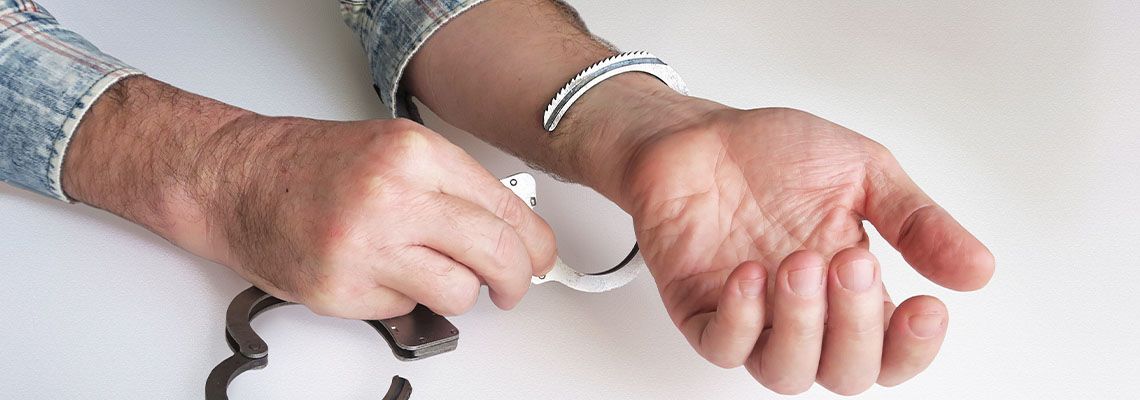
How Bail Works in Texas
Even if you’ve never had experience within the criminal justice system, you’ve likely heard of bail and have a rough idea of how it works. However, once you or someone you love has been arrested for a crime, you’ll need to thoroughly understand the Texas bail requirements. There are different types of bail you can use, and per 2022 data put out by the Texas Judicial Branch, the vast majority (82%) of bail was posted using cash or bail bonds, while only 14% was done using personal property as collateral. To learn more about your options for posting bail and ask questions about your particular situation, call The Linder Firm, serving those in Dallas, Texas, and throughout Dallas Metro and North Texas. Attorney Phillip Linder can speak with you about your rights and continue to fight for them.
What is Bail?
If you’ve never had a run-in with the law, you may be left wondering, “how does bail work?”. At its most basic level, bail is a way to ensure that those who’ve been arrested for a crime return for their court date and don’t try to skip town. To do this, the court asks for a certain amount of money (bail) to be paid upfront as a form of collateral. Then, when you do return for your scheduled court date and make all required appearances, your bail is returned to you. Bail can be in the form of actual cash, check, or money order, but it can also be presented as a bond (sometimes called a surety bond) or even using personal property as collateral, such as a deed to a house or a car.
Who Qualifies for Bail in Texas?
A judge is ultimately the one who decides what amount of bail an arrested person will qualify for; however, there are many crimes that have a set bail amount already attached to them, and if you’re arrested for one of these, you’ll almost always automatically qualify. These are typically minor crimes like misdemeanors or lower-level felonies. That said, there are some crimes and conditions in which Texas law prohibits bail. For example, if you’ve been committed as a sexually violent predator or have been charged with a violent offense such as murder, kidnapping, human trafficking, sexual assault, or aggravated robbery. Furthermore, your criminal history may also play a role in whether you qualify for bail. For instance, if you have a history of convictions or have failed to show up at court dates in the past, a judge may decide to deny bail as an option.
How Is the Amount of Bail Determined?
For many crimes, there are standard bail schedules in place, and if you’re arrested for one of these crimes, you can know right away the amount of bail and decide if you’re able to or want to post it. If you’re unable to come up with this amount, you can ask a judge to lower it in a special bail hearing. It’s then up to the judge whether or not they lower it, or in some cases, they may release you on your own recognizance (meaning you don’t have to pay any bail and are trusted to return to court on your own).
In cases where there’s no pre-set bail, a judge will have to determine what’s appropriate under your circumstances. In any case, a judge must “impose the least restrictive conditions,” which means they can only charge an amount that’s reasonable for ensuring the defendant will return for their court date.
What Are Bail Bonds?
Because many people don’t have the cash available to pay bail, they may turn to a bail bondsman for assistance. These bail bond sellers are private businesses that agree to post your bail in exchange for a fee (typically 10%) and some sort of collateral for the entire bail amount. For example, if your bail was $10,000, they would charge a non-refundable fee of $1,000 and then ask for collateral worth $10,000. Then, they pay your bail, and if you show up to all your court appearances, the courts will return the money to your bail bondsman. However, you’ll still be responsible for paying the $1,000, and if you don’t show up to court, you’ll also be on the hook for the $10,000.
The Bail Process in Texas
For many lower-level crimes, you’ll know what your bail is right away and can either pay or request a bail hearing with a judge. In almost all cases, you will likely want to work with a criminal defense attorney who can represent your interests in front of a judge not only for your bail hearing but for all subsequent court appearances too. An experienced lawyer may be able to lower your bail or eliminate it completely. And, after your bail has been set, your attorney can continue to work with you to ensure you follow all other legal requirements, so your bail is returned.
Strong & Skilled Legal Counsel: The Linder Firm
If you’re in the Dallas, Texas, area and would like to speak with a seasoned criminal defense attorney about your options for bail, reach out to The Linder Firm to get started. Attorney Phillip Linder has the resources, knowledge, and practice to help you look toward a brighter future.
